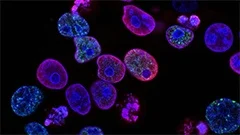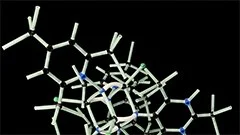Introduction
Cell differentiation, a fundamental process in developmental biology and tissue homeostasis, refers to the conversion of unspecialized cells (undifferentiated or pluripotent stem cells) into specialized cells (differentiated cells) within tissues or organs. This process allows for the diversification of cell types necessary for proper organ function and structure. The understanding of cell differentiation is crucial in various fields, including embryology, regenerative medicine, cancer biology, and developmental genetics.
Mechanisms of Cell Differentiation
Transcription Factors and Regulatory Networks
Transcription factors play a pivotal role in orchestrating cell differentiation by binding to specific DNA sequences and regulating the expression of various genes involved in lineage commitment, proliferation, and specialized function. These proteins form regulatory networks that respond to extracellular cues and determine cell identity and behavior.
Signaling Pathways
Several signaling pathways participate in the regulation of cell differentiation, including Wnt, Notch, Hedgehog, and TGF-β. These pathways often interact with one another to create a complex network that controls gene expression patterns and promotes lineage-specific cell differentiation.
Epigenetic Modifications
Epigenetic modifications, such as DNA methylation, histone modifications, and non-coding RNA regulation, are critical in determining the transcriptional landscape of a given cell type during differentiation. These changes allow for the establishment and maintenance of specific gene expression programs.
Spatial Organization and Cell-Cell Interactions
The spatial organization of cells within tissues and their interactions with neighboring cells play essential roles in orchestrating cell differentiation. Examples include the induction of differentiation by cell-cell contact (contact inhibition) and the creation of gradients of signaling molecules that direct cell fate decisions.
Lineage Commitment and Specification
Induction and Determination
Induction refers to the process whereby a cell is guided towards a particular lineage by extracellular cues, such as growth factors or signaling molecules. Determination, on the other hand, represents an irreversible commitment of a cell to a specific lineage, often associated with changes in gene expression patterns and the activation of lineage-specific transcription factors.
Heterogeneity in Cell Populations
It is important to recognize that not all cells within a population are equally competent for differentiation. Factors such as age, tissue location, and cellular environment can influence a cell's ability to undergo differentiation. Additionally, the presence of stochastic events and intrinsic variations in gene expression may contribute to the emergence of heterogeneous cell populations during development.
Clinical Implications of Cell Differentiation
Stem Cells and Regenerative Medicine
Understanding the mechanisms of cell differentiation has significant implications for regenerative medicine, particularly in the context of stem cells. By manipulating signaling pathways or epigenetic modifications, it is possible to direct pluripotent stem cells towards specific lineages and generate functional cells for use in transplantation therapies.
Cancer Biology
Cell differentiation abnormalities play crucial roles in cancer development and progression. Tumors often arise from the disruption of normal differentiation pathways, leading to uncontrolled proliferation and loss of tissue function. Additionally, the plasticity of cancer cells and their ability to change phenotypes (epithelial-mesenchymal transition) can contribute to tumor aggressiveness and therapeutic resistance.
Developmental Disorders
Mutations in genes involved in cell differentiation can result in developmental disorders, such as congenital anomalies or genetic syndromes. Understanding the molecular mechanisms underlying these disorders can provide insights into normal development and may lead to potential therapies for affected individuals.
Conclusion
Cell differentiation is a complex, multi-layered process that plays fundamental roles in both normal development and disease states. The study of cell differentiation continues to be an active area of research, with implications for various fields such as embryology, regenerative medicine, cancer biology, and developmental genetics. As our understanding of the molecular mechanisms underlying cell differentiation deepens, so too will the potential for therapeutic interventions in areas ranging from tissue repair to cancer treatment.
MCQ: Test your knowledge!
Do you think you know everything about this course? Don't fall into the traps, train with MCQs! eBiologie has hundreds of questions to help you master this subject.
These courses might interest you
Create a free account to receive courses, MCQs, and advice to succeed in your studies!
eBiologie offers several eBooks containing MCQ series (5 booklets available free for each subscriber).




